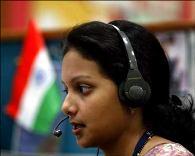 | « Back to article | Print this article |
 As India has kept out of the multilateral agreement on public procurement, it may find it tough to contest in the WTO the US state of Ohio's ban on offshore outsourcing by government departments, experts said.
As India has kept out of the multilateral agreement on public procurement, it may find it tough to contest in the WTO the US state of Ohio's ban on offshore outsourcing by government departments, experts said.
The Agreement on Government Procurement (GPA) is the only legally binding agreement in the WTO setting fair rules for public purchases.
In operation since January, 1996, the GPA is a plurilateral treaty that includes only some members of the World Trade Organisation (WTO) and India remained out of it. India became an 'observer' member of the GPA in February this year.
Even if it wants to become a full-fledged member, it would take a long time, since not even the accession negotiations have started, sources said.
While the US is a member of the GPA, its coverage in regard to software procurement is limited to the federal government and not states. It is in this backdrop that experts feel that India would not be able to challenge the Ohio ban on offshore outsourcing.
Through an executive order, Ohio Governor Ted Strickland had banned offshore outsourcing by government departments. In the run-up to elections to the US Congress in November, President Barack Obama has also raised the pitch against outsourcing, a key earning avenue for the $50 billion Indian software export industry.
"We can only criticise and make noise," said R S Ratna, the head of the Centre for WTO Studies in the Indian Institute of Foreign Trade (IIFT). In the absence of the country being a part of the GPA, India can only try and score some moral points even when WTO negotiations in other areas take place, he said.
Ratna said India should make use of other platforms like the G-20 (Group of 20 most advanced and developing countries) to raise its voice against the protectionist measures.
His views were echoed by Delhi-based think-tank Research and Information System for Developing Countries (RIS)'s trade economist and Director General, Bishwajit Dhar.
"Let's keep reminding them in fora like the G-20. We can tell them it (refraining from protectionism) is a commitment. Open trade is all the more important when there is a fear of a double dip in the global trade," he said.
A Ficci official said while prima facie the Ohio ban looks discriminatory, it requires a detailed study on whether the move can be contested in the WTO.
The Secretary General of CUTS International, Pradeep Mehta, who follows multilateral affairs closely, said while India is not a signatory to the GPA, "The issue can be taken up at the bilateral level."